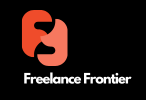Do you know? 47% of the workforce globally is engaged in freelancing. It’s around 1.57 billion freelancers! That’s a high number. Even 9-5 workers are moving towards freelancing or pursuing it as a side hustle. If you are on this page, perhaps you have decided to start freelancing. You are here to learn how to start freelancing with no experience.
First of all, let me say congratulations! Freelancing trends are on the rise. Even the number of companies hiring freelancers is increasing because of the increasing trend of remote work.
Read More!
15 Genius Ways to Make Money Without a Job – Secret Ideas!
Best Freelancing Courses List With Certificate – For All Skills
How to Become a Freelancer on Fiverr? – Proven Strategies!
Can I Start Freelancing Without Experience?
If you are wondering, can I start freelancing without experience? Definitely, yes! All top-rated freelancers were once beginners. They have established their name after months or years of hard work. If you are as passionate as they were – you can also start freelancing with no experience. It just requires your patience and determination to succeed in anything in life.
How to Start Freelancing With No Experience?
Let me be crystal clear – freelancing isn’t a child’s play. It takes your time and energy. You have to be determined to win the race. Only those freelancers who are passionate and consistent would earn dollars through it. Here is a step-by-step breakdown for you.
Think About Your Decision
Not everyone can be a freelancer. Like all fields, it comes with many ups and downs. Perhaps you are fascinated by the idea that freelancers are their bosses. Yes, it’s true – but at times it can leave a negative impact. Often, people cannot stay consistent when they have a choice. No one is there to question you – so you may skip the work. Being your boss is only good for people who are disciplined enough to spend time daily.
FYI
Freelancing does not mean that you will work some days, and take rest for some days. You have to spend hours daily to land clients. You can take a day off, but you will not get paid for it.
Freelancing is for people who can maintain a regular work routine. They should be able to handle many projects at the same time – and face the workload alone. Along with managing tasks, you have to look for clients now and then. I do not want to scare you – I am just debunking some common freelancing myths.

Preliminary Plan
One of the huge mistakes by beginners is that they think of starting freelancing – and end up setting up accounts on various freelancing platforms. That is not right. It’s a business – which requires you to have a plan for it. Here are some questions that you should answer very clearly before you proceed.
- Do you want to make a freelancing full-time career? Or do you want to try it out as a side hustle?
- What is the service that you will sell?
- How much time will you give to freelancing?
- How much do you want to earn from freelancing?
These are just some basic questions that need to be answered. If you are given ample time, you can earn more. Before you hit the freelancing career – make sure to answer these queries.
Find a Niche
FYI
If you are selling to everyone - you are selling to no one.
This statement has a deep meaning. Please don’t neglect it – this is another common mistake. Everyone is not a client for you. You cannot go out and pitch everybody you see. It has to follow a complete process. Find your area of specialization no matter what service you are selling.
Here, I will take the example of a content writer (since I am one). If you plan to be a freelance content writer, think about what topic you love to write about. You don’t have to write on any topic that you get. Pick 2-3 niches and stick to them. Don’t keep on juggling here and there.
You can choose to be a sports writer, a crypto writer, or a tech writer. The choice is yours! If your profile says that you are a sports writer – it would be much more appealing than a general writer’s profile. It makes you stand out from hundreds of general writers.
PRO TIP:
It does not mean that you will skip any other work that you get. If you find any client looking for a different niche, do work for them.
Pick a Platform
Not all platforms will be your game. I have seen numerous freelancers and some of them succeed on Upwork, while some are Fiverr experts. Others may be earning from FlexJobs. You can find freelancing jobs on social media platforms or specific freelancing websites. Some of the popular ones are Fiverr and Upwork – but they might be competitive.
Read More!
Freelancing Websites to Earn Money Without Investment – Secret Ones!
Most In-Demand Freelance Skills for Beginners With Less Competition – 2024
Before you select a website, make sure that you read their terms and conditions. Beginner freelancers would prefer sites that do not require you to spend money applying to jobs. You should also consider the rates they are charging – so you don’t end up paying a high amount of taxes.

There are also some specific websites for different niches. For example, some websites, such as Problogger and Contenta, are only meant for writers. You can also find relevant websites for graphic designers or web developers.
Create a Profile
Once you have decided on the platform – set up your profile there. You can visit their links and follow the instructions. It’s a simple process. The account setup process is different for all platforms. So you have to check it out accordingly. On Fiverr, freelancers have to create a gig that shows their portfolio. You don’t need a resume for these platforms.
PRO TIP
Target specific clients. If you are targeting everybody, you are not targeting anyone. You have to specify the demographics of your ideal clients - it boosts your chances of getting hired.
For example, a content writer can mention on his profile;
“Helping small businesses and agencies boost their conversion rates through compelling content”
This is a catchy tagline that will attract buyers. Similarly, you can target clients of a specific location, specific businesses, or anything else.
Set Your Rates
Here comes a challenging part of how to start freelancing with no experience. You may want to charge high – because you want to earn as soon as possible. Or you may think that charging low would attract clients. However, setting your rates as a freelancer is not an easy task. It is not something that you can just decide yourself. Here are some thumbs to look for;
- Your experience: if you are starting freelancing with no experience, your charges would be a little lower
- Education level
- Demands of your services: if your skill is in high demand, you can charge higher
- Your location: US and UK freelancers charge more than South Asian freelancers
- Prices of your competitors
Learn More!
Most In-Demand Freelance Skills With Less Competition 2024
Here’s my recommendation:
Charge a little lower than your competitors. Look for people who are selling the same services as you. Since you are a beginner – you must charge a little lower. It does not mean selling your valuable services for a few bucks – a balance always works the best.
Set Up a Portfolio
You are already at the end! You have done most of the work – but a sensitive part is still left. You need a portfolio. After all, this is the only thing that your clients will see (and judge you). If your portfolio impresses them, congrats! The deal is yours.
But first, you have to create a compelling portfolio that will attract buyers. The best portfolio is a professional website. You can use free tools to create websites like Wix or Weebly – they work well.
Yet, I strongly recommend having your website. You will need to purchase a hosting and domain name for this. As a beginner, this would be hard for you. But a little investment would be worth it! It will make you shine brighter in thousands of freelancers. Follow these tips for a professional website:
- Include a clear picture of yourself.
- Write a short intro that shows how you can help your clients.
- Include some samples of your work.
- If you have some experience, don’t forget to mention it on the landing app.
- You can include reviews from previous clients.
- Make your website user-friendly.
- Consider making the website search engine friendly.
PRO TIP
Freelance writers can create their portfolio on Medium - it's equally professional.
Find your First Client
1. Freelancing Platforms
Most of the freelancing platforms enlist jobs every day. You have to send a proposal to a relevant job to get yourself hired. In this part, beginner freelancers make another huge mistake. They think the more jobs they will apply to – the higher their chances of getting hired.
Sadly, it’s not true. You have to apply for relevant jobs. Only send proposals if the job post exactly matches your skills. It prevents you from wasting your time (or money in some cases). If you have a freelance writing profile in the tech niche – only apply for tech-related writing jobs.
2. Social Media Groups
Are you tired of paying huge sums as taxes? Freelancing marketplaces charge a huge amount for every product that will do. If you want to avoid this, you can join communities and groups on social media. After all, we love social media – so why not get an advantage from it?

My personal preference is LinkedIn and Facebook groups. Many jobs are posted in these communities. There’s one drawback of this method. You will find clients – but there is no professional contract here. You will not have security in the payments that can be found on freelancing websites. One way to avoid scams is to charge some upfront amount and then start the work. If the client is willing to do so, you would be lucky. If not, you must thoroughly check their profile to determine their authenticity. Their profile would show you who they are – and how much you can trust them.
3. Your Website
Having a strong presence on Google can also attract clients. Your work should include a portfolio of your work, testimonials, and contact information. For this step, you need to learn extensive search engine optimization. SEO is all the work done to get your website ranked on the first search engines to Google.
For example, if anyone searches for the best finance writers on Google, they will find many websites. If your website appears on the first page, you can get some high-paying clients. This process would need extensive race and learning.
How To Start Freelancing As A Student?
Starting freelancing as a student can be a game-changer for both your skills and your wallet. Follow the steps outlined above—choose a niche, pick a platform, and set your rates—but apply them with your twist. Get the best from your unique skills or education to find flexible gigs that fit your classes. Even small projects can improve your resume and build your portfolio. It sets you up for success now and in the future.
Tips To Start Freelancing With No Experience
Here are some secret tips and tricks that will make you stand out from other freelancers. You can never go wrong if you are implementing these!
- Start with Small Projects: Sell your services at a lower rate or even for free to build a portfolio and get positive client feedback.
- Build Soft Skills: Soft skills show your personality. You need a good command of English to impressss your clients.
- Use Online Learning Platforms: Take free or affordable courses to quickly gain knowledge and skills relevant to your chosen niche.
- Build a Simple Portfolio: Use platforms like Wix or Weebly to create a basic website, even if it’s a self-initiated project.
- Network in Forums: Join industry-specific forums or groups to connect with potential clients. Here, you will also get advice from experienced freelancers.
- Use Social Media: Promote your skills and services on LinkedIn and Facebook. Join relevant groups to find clients.
- Offer to Work for Friends: You can get experience by providing your services to those in your network. This will give you referrals and testimonials.
- Create a Unique Selling Point: Identify what makes you different from other freelancers and highlight this in your profile.
- Apply for Entry-Level Jobs: Look for freelance gigs labeled as “entry-level” or “beginner” to increase your chances of landing a first job.
- Ask for Referrals: Once you complete a job, ask satisfied clients for testimonials to build credibility.
- Stay Professional: Even if you’re starting, always maintain professionalism in communication and delivery. It will create a strong reputation.
So, that’s all for how to start freelancing with no experience. Hopefully, you have learned a lot – but there’s a lot left to learn. If you have reached here, I strongly recommend browsing through my other blogs. They cover every aspect of freelancing. You will find valuable information in all blogs.
FAQs
How to start freelancing without experience online?
Follow the complete guide I have highlighted above. If you are importing these tips, you will land clients with a few efforts.
How do I find my first freelancing job?
Use platforms like Upwork or Fiverr to apply for entry-level jobs. Networking on social media and joining niche forums can also help.
What should I include in my portfolio?
Include samples of any relevant work, even if they are self-initiated. A simple, well-organized portfolio is effective.
How to create a freelancer profile?
Give a clear description of your skills and any relevant work. Use specific keywords related to your niche.









